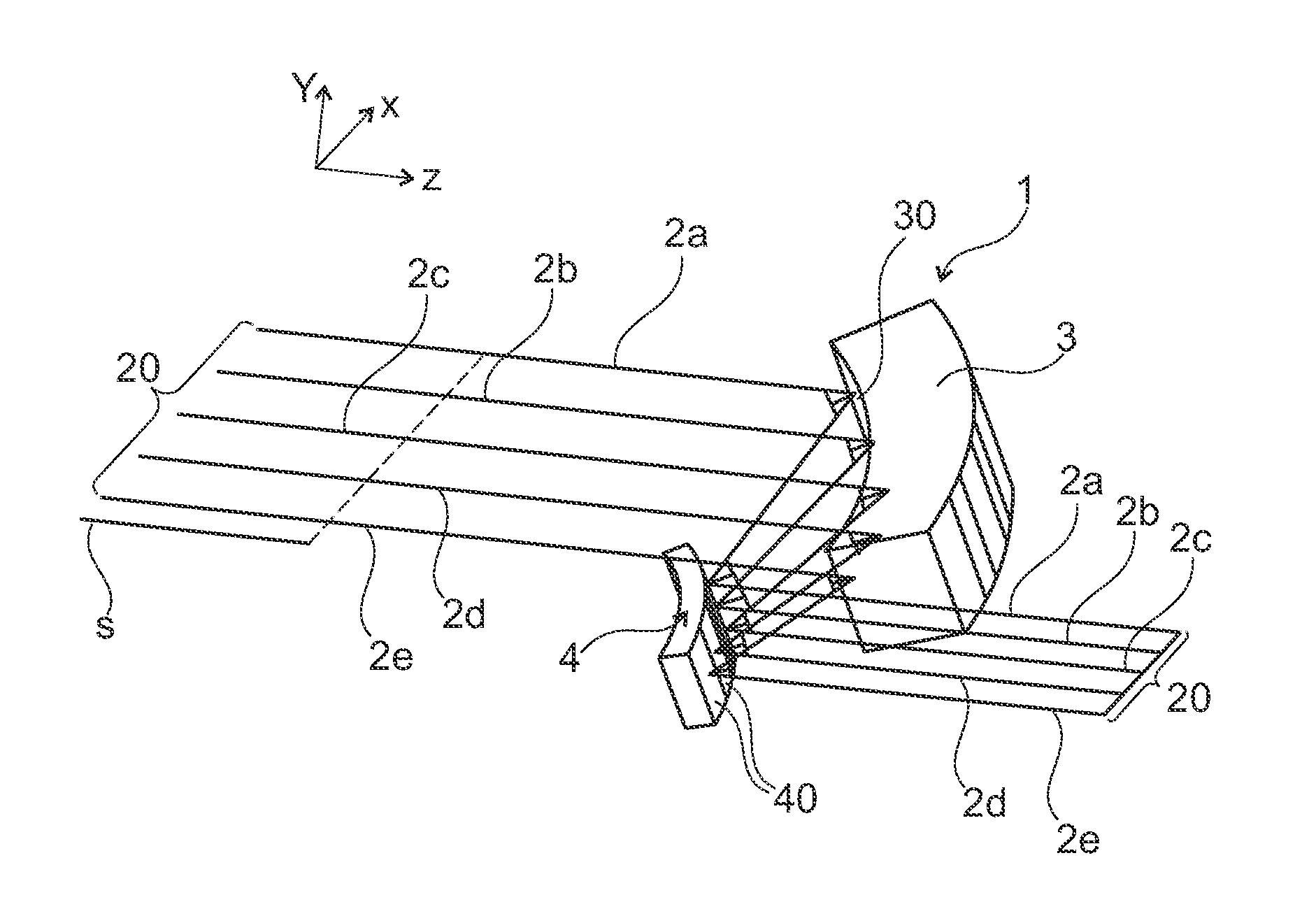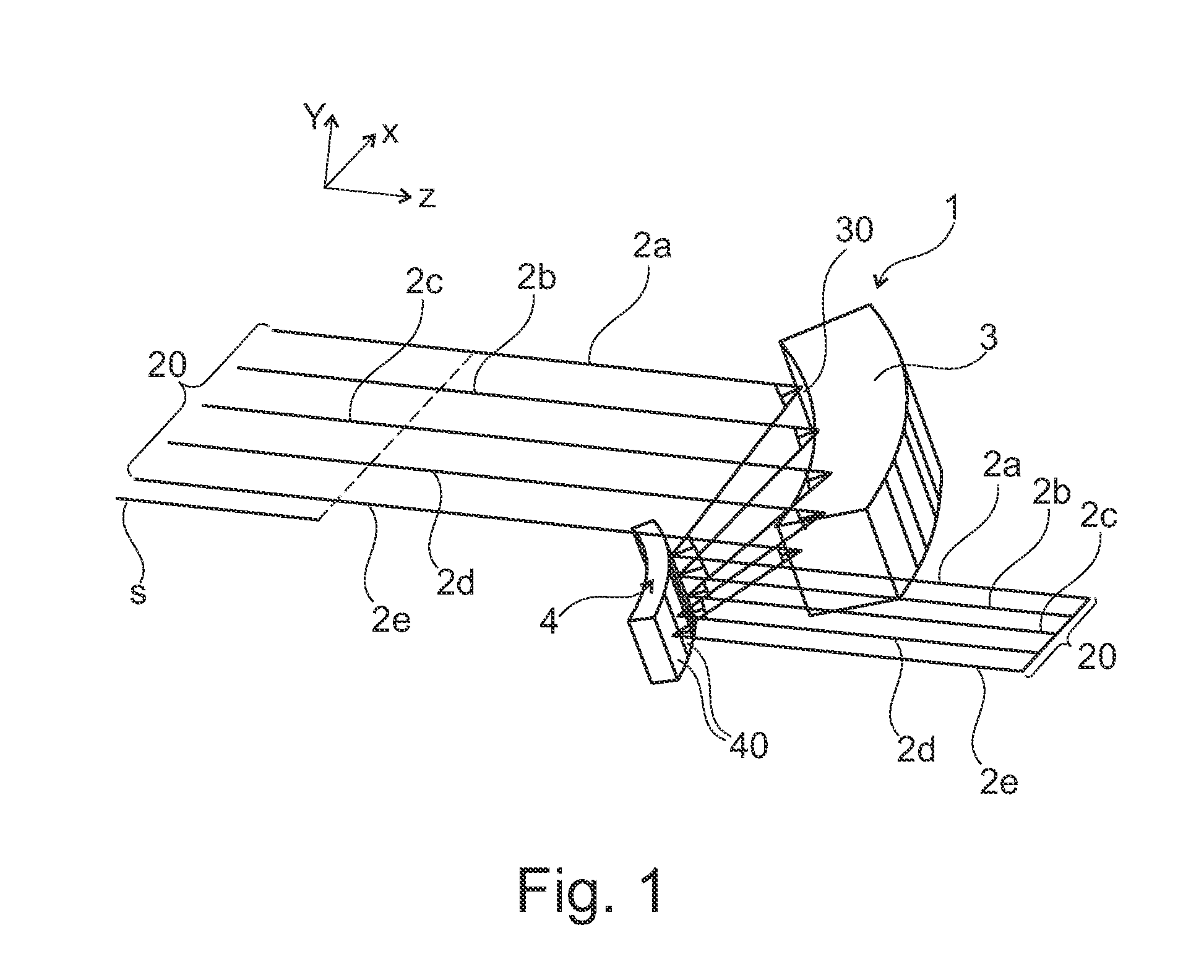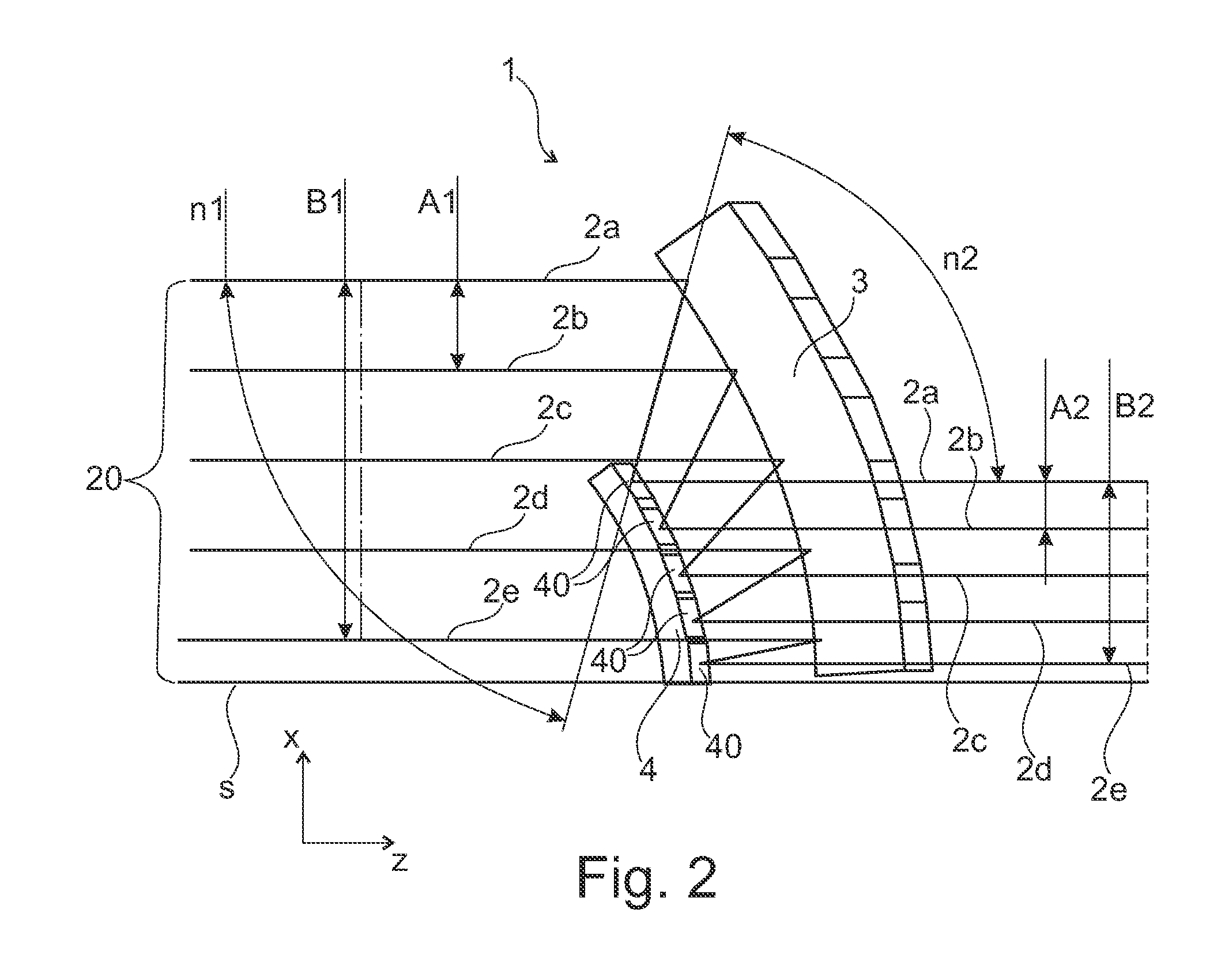Arrangement For Shaping Laser Radiation
a laser radiation and arrangement technology, applied in the direction of optics, instruments, optical elements, etc., can solve the problems of insufficient brightness, often insufficient achievable brightness, and often insufficient arrangement efficiency, so as to reduce the divergence of sub-beams
- Summary
- Abstract
- Description
- Claims
- Application Information
AI Technical Summary
Benefits of technology
Problems solved by technology
Method used
Image
Examples
Embodiment Construction
[0025]To simplify the following description, Cartesian coordinate systems, which define the mutually orthogonal x-, y- and z-directions, are shown in all Figures.
[0026]In FIGS. 1-3, reference numeral 2a-2e indicate several (five exemplary) sub-beams that can be emitted from particular emitters of a laser diode bar (not explicitly shown here for sake of simplicity) and form a laser beam (laser radiation) 20. The propagation direction, in which the sub-beams 2a-2e propagate, is here the z-direction. The individual emitters of such laser diode bar are spaced from one another in the so-called slow axis (in this case in the x-direction). Typically, each emitter of such a laser diode bar may have a length of about 150 μm in the slow axis, wherein the spacing between two adjacent emitters in this direction is approximately 400 μm. The individual emitters thus emit sub-beams 2a-2e of the laser radiation of the laser diode bar.
[0027]The arrangement shown in FIG. 1 may include a fast-axis col...
PUM
 Login to View More
Login to View More Abstract
Description
Claims
Application Information
 Login to View More
Login to View More - R&D
- Intellectual Property
- Life Sciences
- Materials
- Tech Scout
- Unparalleled Data Quality
- Higher Quality Content
- 60% Fewer Hallucinations
Browse by: Latest US Patents, China's latest patents, Technical Efficacy Thesaurus, Application Domain, Technology Topic, Popular Technical Reports.
© 2025 PatSnap. All rights reserved.Legal|Privacy policy|Modern Slavery Act Transparency Statement|Sitemap|About US| Contact US: help@patsnap.com



